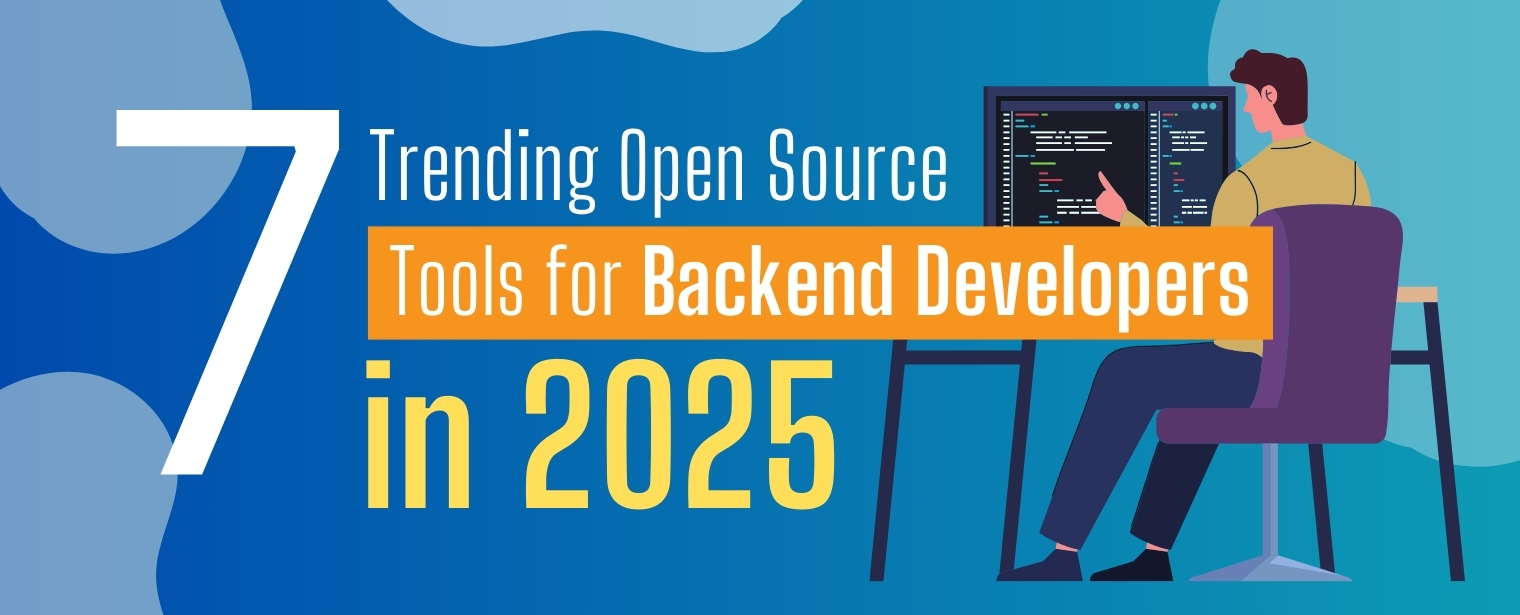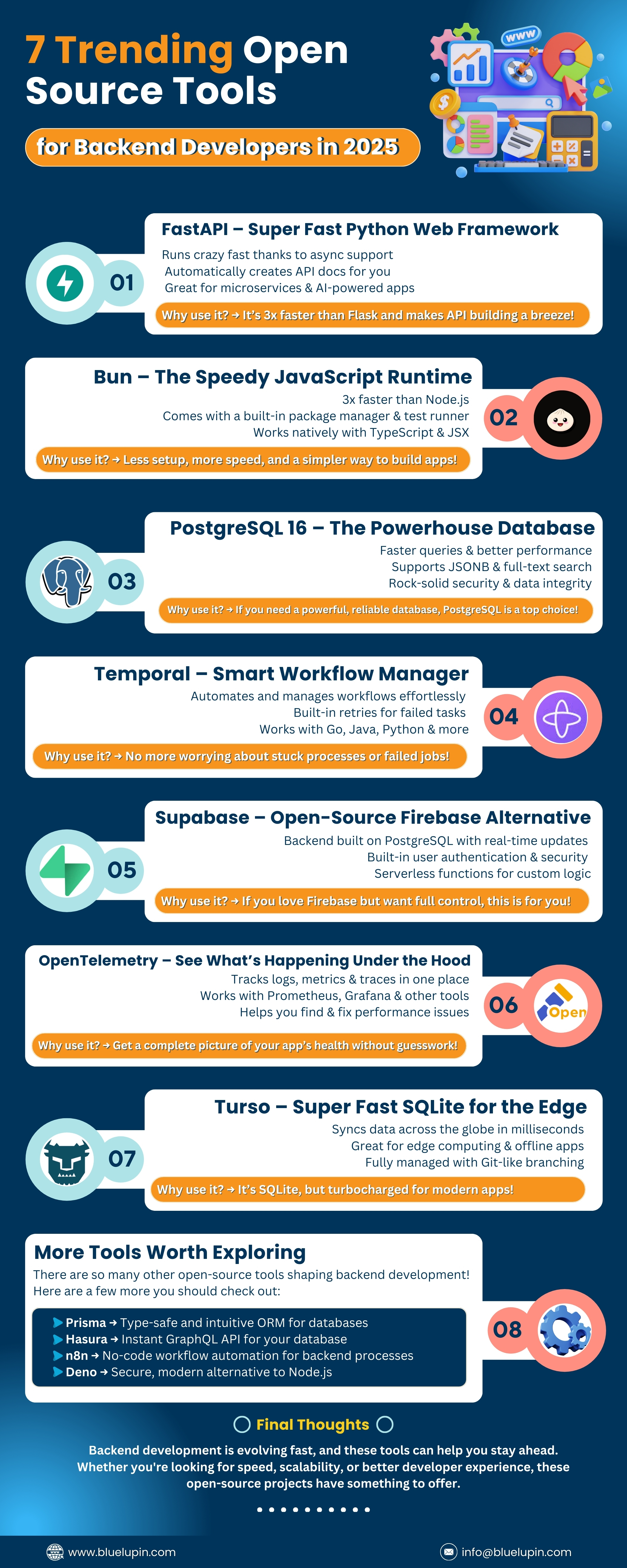7 Trending Open Source Tools for Backend Developers in 2025

If you’re a backend developer, chances are you’ve heard about open-source tools. But have you ever stopped to think about how much they impact your daily work? From databases to frameworks and workflow automation, open-source software is at the core of modern development.
In fact, a 2024 State of Open Source Report found that 80% of companies now depend on open-source technologies. Whether you’re building a small side project or working on enterprise-level applications, using the right open-source tools can save time, cut costs, and boost productivity.
What Are Open Source Tools?
Simply put, open-source tools are software programs where the source code is publicly available. This means developers can modify, customize, and improve them however they like. Unlike paid software, which comes with restrictions and licensing fees, open-source tools are free to use and backed by large communities of developers constantly improving them.
How Do They Help Backend Developers?
Backend development is a complex process that involves handling databases, managing server logic, and ensuring smooth communication between different services. Open-source tools help backend developers in several key ways:
1. Reducing Development Time
Backend developers often face tight deadlines and increasing project complexity. Open-source frameworks and libraries provide pre-built solutions for common functionalities, such as authentication, database management, and API handling. Instead of writing everything from scratch, developers can use these tools to speed up the development process and focus on the core features of their applications.
2. Enhancing Performance and Scalability
As applications grow, they need to handle more users and larger datasets efficiently. Many open-source tools are optimized for high performance, ensuring that backend systems can scale without major overhauls. Advanced databases, caching mechanisms, and load-balancing tools help manage traffic spikes, reduce latency, and ensure smooth user experiences.
3. Strengthening Security
Security is a major concern for backend developers, as any vulnerabilities in the system can lead to data breaches. Since open-source tools are developed and reviewed by global communities of experts, security flaws are identified and patched much faster than in proprietary software. Developers also have full visibility into the code, allowing them to audit and enhance security measures according to their specific needs.
4. Offering Greater Flexibility and Customization
With proprietary software, developers are often restricted to the features and limitations imposed by the vendor. Open-source tools, on the other hand, provide complete flexibility, allowing backend engineers to modify and extend the software based on their project requirements. This is especially useful for businesses that need tailor-made solutions rather than one-size-fits-all products.
5. Lowering Costs Without Compromising Quality
Many startups and small businesses operate on tight budgets and cannot afford expensive software licenses. Open-source tools provide enterprise-level capabilities without the financial burden. Even large corporations leverage open-source solutions to reduce operational costs while maintaining high-quality performance and reliability.
6. Encouraging Collaboration and Knowledge Sharing
One of the biggest advantages of open-source software is the active and supportive community behind it. Developers from around the world contribute to improving these tools, fixing bugs, and adding new features. This collaborative approach leads to continuous innovation and ensures that backend developers always have access to up-to-date, well-maintained software.
The Growing Popularity of Open Source
Open-source adoption is at an all-time high. According to GitHub’s Octoverse Report, over 90% of modern applications now use at least one open-source component. Even big tech companies like Google, Microsoft, and Meta actively contribute to open-source projects.
Why? Because open-source tools allow businesses to build faster, cheaper, and more scalable applications. Whether it’s a database, an API framework, or a performance monitoring tool, open-source solutions are powering today’s most successful platforms.
Want to know which open-source tools are trending in 2025? Check out the infographic below to see the top picks!


